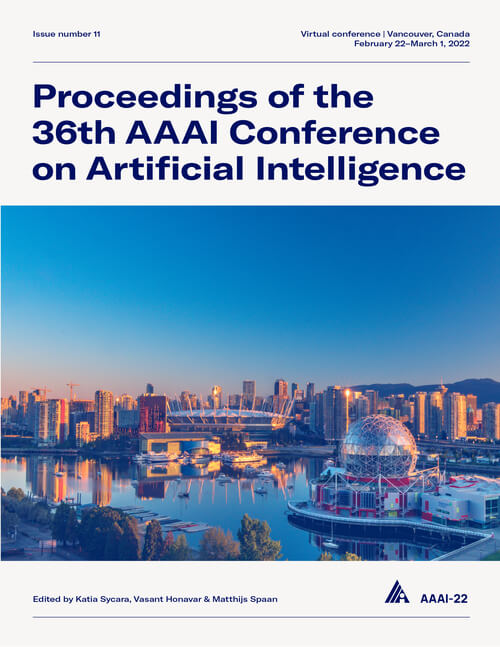CrossWalk: Fairness-Enhanced Node Representation Learning
DOI:
https://doi.org/10.1609/aaai.v36i11.21454Keywords:
AI For Social Impact (AISI Track Papers Only)Abstract
The potential for machine learning systems to amplify social inequities and unfairness is receiving increasing popular and academic attention. Much recent work has focused on developing algorithmic tools to assess and mitigate such unfairness. However, there is little work on enhancing fairness in graph algorithms. Here, we develop a simple, effective and general method, CrossWalk, that enhances fairness of various graph algorithms, including influence maximization, link prediction and node classification, applied to node embeddings. CrossWalk is applicable to any random walk based node representation learning algorithm, such as DeepWalk and Node2Vec. The key idea is to bias random walks to cross group boundaries, by upweighting edges which (1) are closer to the groups’ peripheries or (2) connect different groups in the network. CrossWalk pulls nodes that are near groups’ peripheries towards their neighbors from other groups in the embedding space, while preserving the necessary structural properties of the graph. Extensive experiments show the effectiveness of our algorithm to enhance fairness in various graph algorithms, including influence maximization, link prediction and node classification in synthetic and real networks, with only a very small decrease in performance.Downloads
Published
2022-06-28
How to Cite
Khajehnejad, A., Khajehnejad, M., Babaei, M., Gummadi, K. P., Weller, A., & Mirzasoleiman, B. (2022). CrossWalk: Fairness-Enhanced Node Representation Learning. Proceedings of the AAAI Conference on Artificial Intelligence, 36(11), 11963-11970. https://doi.org/10.1609/aaai.v36i11.21454
Issue
Section
AAAI Special Track on AI for Social Impact

